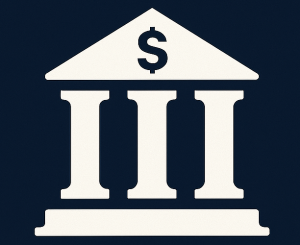AI Stock Market ‘Oracle’ 2024? Decoding Algorithmic Secrets
Can AI Really Predict the Stock Market in 2024?
Okay, so, like everyone else, I’ve been hearing all the buzz about AI and its potential to, you know, basically take over the world. And one of the areas that keeps popping up is finance. Specifically, the stock market. The promise is pretty alluring: imagine an AI that can actually *predict* market movements. Buy low, sell high, retire early. Sounds amazing, right? Almost too good to be true. Honestly, I’m naturally skeptical. I mean, isn’t the whole point of the stock market that it’s unpredictable? Turns out, it’s more complicated than just some sci-fi fantasy. We’re talking complex algorithms, massive datasets, and a whole lot of educated guessing, even on the AI’s part. But what happens when you put this powerful tool in the wrong hands, or when it just… gets it wrong? It’s a lot to unpack, and honestly, it’s making my head spin a little bit. What I’m wondering is, how much of this is actually real, and how much is just hype?
AI’s Role in Financial Analysis: More Than Just Hype?
Okay, so let’s get a little more specific. What exactly *is* AI doing in the world of finance? It’s not just some robot sitting at a desk, barking out buy and sell orders (though, I guess that’s kind of what’s happening on some level). The main thing is data analysis. AI algorithms can sift through *massive* amounts of data – news articles, social media feeds, economic indicators, historical stock prices – way faster and more efficiently than any human ever could. And, get this, supposedly, they can identify patterns that humans would miss. Patterns that might indicate where a stock is headed. Seems pretty neat, right? This also means that AI isn’t just limited to big corporations. Individual investors have access to AI-powered trading bots and analysis tools. It’s democratizing the market, making this level of high-powered analysis available to anyone. That, in theory, is pretty cool.
The Limits of Prediction: AI is Smart, But Is It All-Knowing?
Okay, so here’s where my skepticism kicks in again. Even the most advanced AI is still just a machine. It’s only as good as the data it’s trained on. And, as we all know, past performance is no guarantee of future results. I mean, remember 2020? Nobody predicted that. Nobody. A global pandemic threw everything out the window. And what about unexpected geopolitical events? A sudden change in interest rates? The stock market is influenced by *so* many factors, many of which are completely unpredictable. So how can any AI, no matter how sophisticated, account for all that? It’s like trying to predict the weather a year in advance. Sure, you can make an educated guess, but you’re probably going to be wrong at some point. Also, aren’t we basically handing over all our investing decisions to a computer? That feels a little weird, doesn’t it? Like, what if the AI makes a mistake? Who’s responsible then? It’s something I haven’t quite figured out yet.
The Human Factor: Are We Ready to Trust the Machines?
Here’s the funny thing: even if AI *could* perfectly predict the stock market, would we actually trust it? I mean, let’s be honest, a lot of investing is driven by emotion. Fear, greed, hope. These aren’t things that algorithms can easily understand or predict. Plus, there’s the whole issue of ethics. If an AI knows that a stock is about to crash, does it have a responsibility to warn investors? Or does it just quietly sell off its own positions, leaving everyone else holding the bag? I stayed up until 3 a.m. a while back reading about a hedge fund scandal where an algorithm seemed to do just that. Ugh, what a mess! Plus, what happens when everyone starts using the same AI? Won’t that just create a feedback loop, where everyone is buying and selling at the same time, amplifying market volatility? These things feel more complicated than the average news article lets on.
My Own AI Investing Blunder (and What I Learned)
I’ll admit, I dabbled with an AI-powered trading app for a while. Seemed like a smart way to diversify my portfolio. The app promised impressive returns, using sophisticated algorithms to identify undervalued stocks. Long story short, I didn’t get rich. I didn’t even break even. I think I ended up losing about $200. It wasn’t a ton of money, but it was enough to make me realize that AI is not a magic bullet. Honestly, I think I sold too early because I was just impatient and not sure if it would recover, and it might have. I learned that you still need to do your own research, understand the risks, and have a solid investment strategy. Don’t just blindly trust the algorithm. It’s a tool, not a replacement for good old-fashioned common sense. So while AI might change the game, it doesn’t mean the old rules don’t apply anymore.
Risks to Consider Before Letting AI Steer Your Investments
Speaking of risk, it’s crucial to understand the potential downsides of relying too heavily on AI for your investment decisions. For one, there’s the black box problem. Many AI algorithms are so complex that even the developers don’t fully understand how they work. This lack of transparency can make it difficult to identify and correct errors. Then there’s the risk of data bias. If the data that the AI is trained on is biased, the AI will likely make biased decisions. For example, if the AI is trained on historical stock data that only includes information about large companies, it may not be able to accurately predict the performance of smaller companies. And, of course, there’s always the risk of a technological glitch. A bug in the algorithm, a power outage, a cyberattack – any of these things could cause the AI to make a bad decision, costing you money.
Staying Informed: How to Navigate the AI-Driven Stock Market in 2024
Okay, so what’s the takeaway here? Should we all run screaming from the stock market and hide our money under our mattresses? Probably not. AI is clearly changing the way we invest, and it’s important to stay informed. Don’t blindly trust the hype, but don’t ignore the potential benefits either. Do your own research. Understand the risks. And remember that even the smartest AI is still just a tool. It’s up to you to use it wisely. I mean, I wouldn’t bet my retirement on some random algorithm I found online. But, if you’re as curious as I was, you might want to dig into algorithmic trading strategies and see what people are talking about.
So, Is AI the Future of Investing? A Final Thought
Honestly, I’m still not sure. The potential is definitely there, but so are the risks. I think AI will continue to play an increasingly important role in the stock market, but it won’t completely replace human investors. There will always be a need for critical thinking, common sense, and a healthy dose of skepticism. And maybe, just maybe, I’ll give that AI trading app another shot. But this time, I’ll be a lot more careful. Who even knows what’s next?













